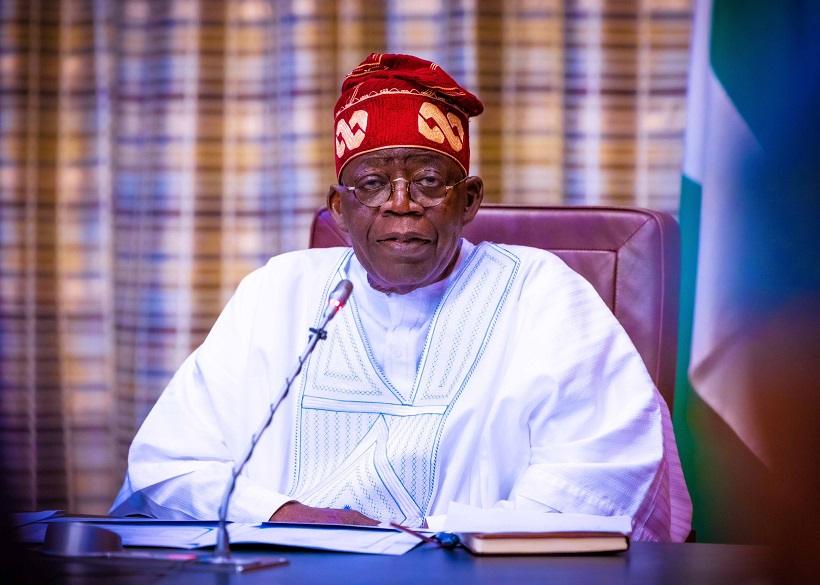
President Bola Tinubu has directed Nigeria’s financial and capital market regulators to closely monitor the rapid rise of stablecoins and digital currencies, warning that the shift away from traditional banking poses serious challenges for financial stability and policy oversight.
Speaking through Finance Minister Wale Edun at the 18th Annual Banking and Finance Conference of the Chartered Institute of Bankers of Nigeria (CIBN) in Abuja on Tuesday, Tinubu acknowledged the sweeping changes reshaping the global financial ecosystem.
“There is a digital revolution. So many people now are not using the banking system to make payments. They’ve turned to stablecoins, they’ve turned to digital currency,” he said.
“I have directed capital market and banking authorities to get hold of this narrative and track it while it is still evolving.”
The President’s remarks come as the Securities and Exchange Commission (SEC) ramps up regulation under the new Investment and Securities Act 2025, which classifies digital assets as securities.
Under the law, the SEC is empowered to license Virtual Asset Service Providers (VASPs), including exchanges and custodians, and enforce strict Know Your Customer (KYC) and Anti-Money Laundering (AML) requirements.
Tinubu stressed the need for Nigeria’s economy to move from mere survival to systemic reinvention, led by digital innovation, artificial intelligence, and open banking frameworks.
He noted that despite GDP growth, Nigeria’s industrial sector particularly manufacturing has yet to generate jobs at the needed scale.
“Our GDP is growing, but the industrial contribution from manufacturing is not where it should be. The innovation is there we must leverage AI, digital tools, and open banking to enhance productivity and job creation,” he stated.
The President emphasized the critical role of Nigeria’s youth population, projected to be the largest workforce in the world by 2050, as a strategic asset in the country’s development roadmap.
“That’s why we’re investing heavily in education, infrastructure, and digital skills—to equip our youth for the jobs of the future,” Tinubu said.
On fiscal strategy, Tinubu highlighted the gains from linking government accounts to the Central Bank of Nigeria (CBN), which he said has significantly improved transparency and revenue mobilization.
“This visibility into public finances will pay dividends,” he explained. “It gives us the tools to optimise revenue and reduce leakages.”
He also referenced the tax reforms signed into law in June 2025, which consolidate over 100 tax-collecting entities into a unified Nigeria Revenue Service, set to launch in January 2026.
The President cautioned that financial inclusion must go beyond access to bank accounts, and instead result in quality employment opportunities, particularly for young Nigerians.
“Inclusion is not just about having a wallet or an account,” Tinubu said. “It means access to affordable credit, support for small businesses, and ultimately, jobs attractive, meaningful jobs for our youth.”
CBN Targets $1 Billion Monthly in Diaspora Remittances
Also speaking at the conference, CBN Governor Olayemi Cardoso unveiled an ambitious plan to increase diaspora remittances to $1 billion per month by 2026.
He emphasized that remittances remain one of Nigeria’s most stable foreign exchange sources, and that the central bank is now working with banks like Access Bank and Zenith Bank to build trust among Nigerians abroad.
“We started at $250 million monthly, doubled that to $500 million, and now we’re at $600 million,” Cardoso said. “Our goal is to reach $1 billion a month by 2026.”
Banking Sector Driving Non-Oil Growth
In his remarks, CIBN President and Council Chairman, Prof. Pius Olanrewaju, said Nigerian banks have raised over ₦2.5 trillion in capital since 2024, driving credit expansion and private sector investment.
He noted that net domestic credit to the private sector has reached ₦82 trillion, while non-oil exports expanded to 236 products in H1 2025, generating $3.23 billion in revenue,a 19.6% year-on-year increase.
Olanrewaju commended Tinubu for the recent tax reforms, saying they would help streamline policy, improve business confidence, and strengthen the economy’s foundation.
Conference Focus: Digital Innovation for Inclusive Growth
The conference brought together leading voices from Nigeria’s banking, finance, and technology sectors, with discussions centered on how policy, innovation, and private investment can be aligned to achieve inclusive, job-creating growth.
President Tinubu closed his remarks with a call to action:
“Those that innovate, reform, and collaborate will thrive. This is the path Nigeria is firmly committed to.”



